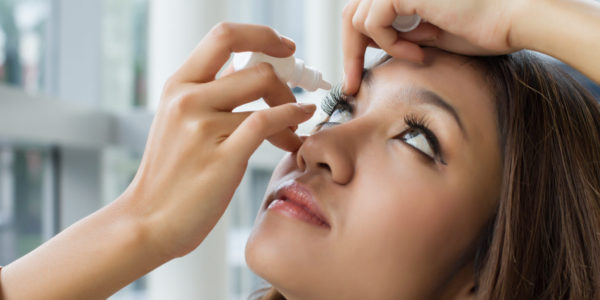<!– wp:acf/simple-container-text {
"id": "block_60ec31a73cc90",
"name": "acf/simple-container-text",
"data": {
"text": "
Your Age
rnDry eye disease becomes more common with age as natural tear production decreases. If you are over the age of 65, you are more likely to develop dry eye symptoms.rn
Pre-existing Health Conditions
rnA history of systemic conditions such as lupus, rheumatoid arthritis, Sjogren’s syndrome, rosacea and thyroid disorders increases the chances of dry eye.rn
Medications You Take
rnIf you take medications such as antihistamines, antidepressants, diuretics and beta-blockers, they could be affecting your tear production. Birth control pills and sleeping pills are also associated with dry eyes.rn
Spending Lots of Time Using a Computer or Smartphone
rnWorking on a computer or scrolling through your smartphone or tablet for prolonged periods of time are visually intensive tasks that slow down your natural blink rate. As a result, tears may evaporate off the surface of your eyes more quickly and your eyes may become dry.rn
Going Through Menopause
rnAccording to the American Journal of Ophthalmology report, twice as many women have been diagnosed with dry eye than men. Many of these women develop dry eye as a result of the hormonal changes that occur during menopause.rn
Exposure to Dry or Windy Climates
rnEnvironmental conditions such as dry, windy climates can cause tears to evaporate from your ocular surface rapidly. If you are regularly exposed to smoke or secondhand smoke, it may cause or contribute to your dry eye problems.rn
Low-Humidity Environments
rnA lack of moisture in the air can affect your sensitive eyes. Running heat or air conditioning inside your home excessively can increase the evaporation of your tears, as can spending time in low-humidity environments like airplanes and hospitals.rn
Eyelid Abnormalities
rnAbnormalities of the eyelids, such as entropion (when the eyelids turn inward) and ectropion (when the eyelids turn outward) have been linked to dry eye symptoms. Disorders that prevent eyelids from completely closing during sleep can also cause dry eyes.rn
Get Professional Help for Dry Eyes
rnSometimes simple tweaks — like using a humidifier in your home, decreasing screen time and stopping medications known to reduce tear production — help resolve dry eye symptoms. But it is best to consult with a doctor like Mark Mandel, MD, who can determine the underlying cause of your problems and recommend a safe, effective course of action.rnrnTo request an appointment with Mark Mandel, MD, please call 510-886-3937 ext. 3 today.”,
“_text”: “field_60cb64cb565f6”
},
“align”: “”,
“mode”: “edit”
} /–>


